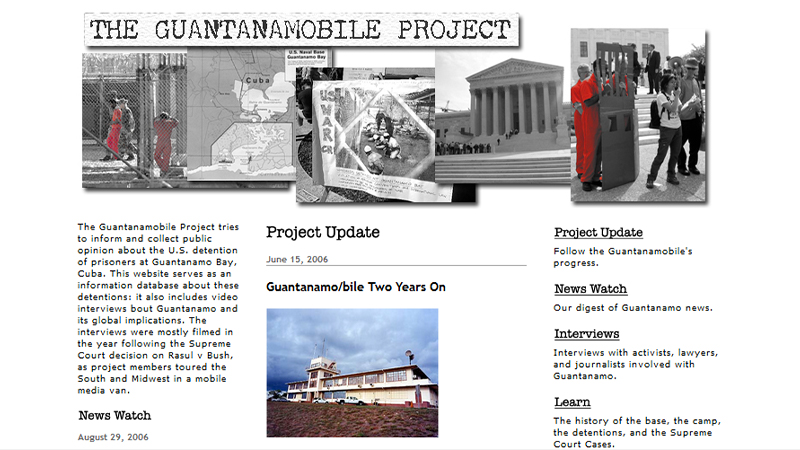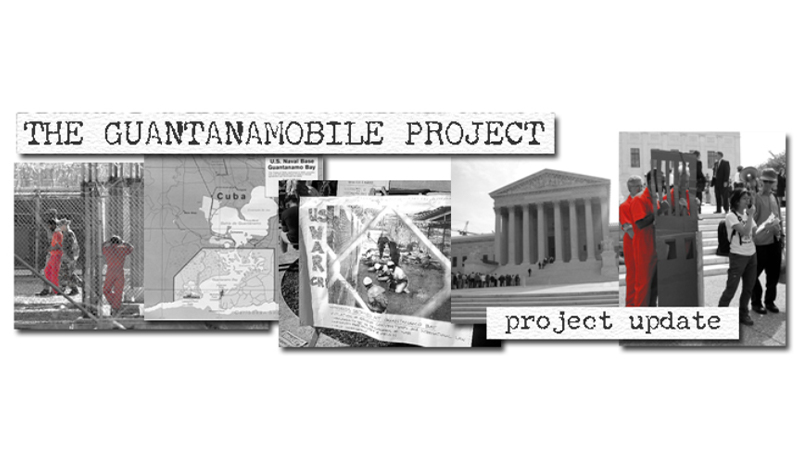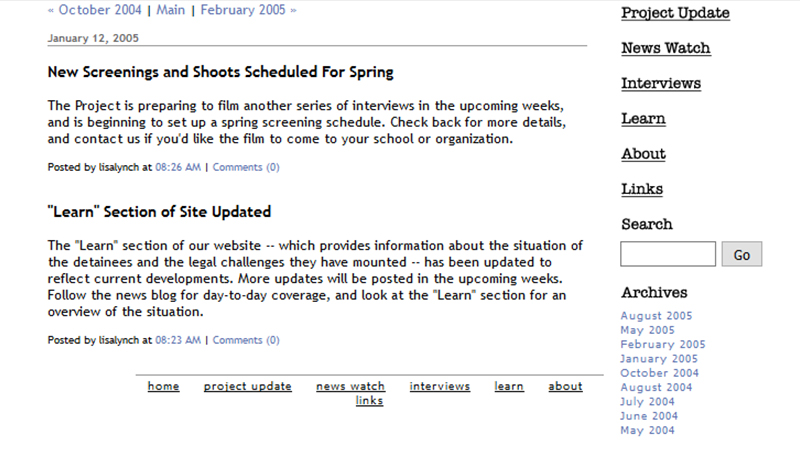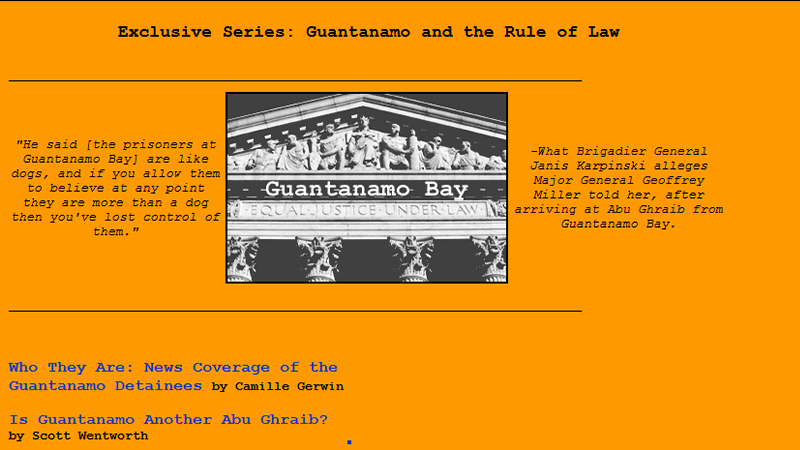"The Guantanamobile Project" is a project that took "a shrink-wrapped, tech-laden van into the streets and parking lots of several Southern and Midwestern cities. The van created a mobile, roaming public sphere aimed at engaging reflection and dialogue about U.S. detention practices at Guantanamo. The Project was motivated by its creators' observation that U.S. citizens seemed largely unconcerned with what was happening on a remote military base beyond the borders of the nation, so it also provided factual and analytical information about the U.S. legal system and the detention center itself. The results of their experiments with this technologically-mediated, D.Y.I. public realm form one thread of the Vectors' project presented here.
This publication brings together material from the road trip and its interviews, from extensive research, from the film produced for the road trip, and from the website for the larger project, underscoring the mutability and transformative potential of digital documents. Working across multiple platforms – both digital and physical – and drawing from an ever-expanding database of resource materials to create civically-engaged products, the Guantanamobile Project underscores the intermedial quality of 21st-century life. The use of audio and video in the piece published here sets the stage for the user's deeper engagement with a host of moral, legal, and political topics. It also reminds us that mobility is not equally available to everyone.
Like others pieces in this issue, The Guantanamobile Project also blurs the line between 'scholarship proper' and public discourse, encouraging an expansion of the scholarly concerns of legal and cultural studies to a broader audience. Given the circulation possibilities of digital publication and the increasing marginalization of the humanities within the university, it is crucial to understand such public sphere activity as scholarly activity rather than as something scholars might do 'in addition' to their research. Such a perspective informs the ongoing push within the academy toward a new type of public humanities that can connect the work of various scholars to issues of public relevance and import." – Vectors Journal Editorial Staff
1 COPY IN THE NEXT
Published in Spring, 2006 by Vectors in Volume 1, Issue 2.
This copy was given to the Electronic Literature Lab by Erik Loyer in November of 2021.
PUBLICATION TYPE
Online Journal
COPY MEDIA FORMAT
Web



